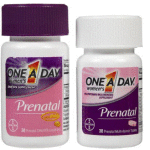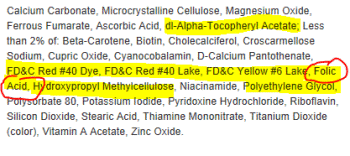Over the past few decades the field of medicine has had a reductionist view of nutrition. Food was only macronutrients and micronutrients: fats, carbs, protein, vitamin and minerals and water and maybe fiber. Why is participating in the Clean & Lean Revolution vital to your health; because food is information.
You are born with a set amount of genes and DNA. What is malleable is your epigenetics, collectively known as your epigenome. These genes get turned on and off so they are ‘expressed’ at different parts of our life, per your gender and age AND per your interactions to your environment: Food, exercise, THOUGHTS, sleep… the field of nutritional genomics studies how your food interacts with your epigenome.
When you eat processed foods, you are sending information to your body. These messages wash over your genes and tell them to switch on or off. If you eat something like high fructose corn syrup, this turns on your genes that create TNF- alpha which stimulates cytokines (small proteins that are important in cell signaling), which signal for inflammation to occur. You would expect this pathway to be activated if you hurt your ankle, but you likely don’t expect to see this type of reaction from food.
The average person consumes 145 pounds of sugar a year! What kind of message does this send to your body? Manmade molecules turn on your inflammatory genes and turn off your anti-inflammatory genes. You can turn off inflammation by eating the right food and sending the right message to your genes.
We now know what nature intended; that the tens of thousands of bioactive compounds, cofactors and phytonutrients that you get from whole foods – turn gene signaling on and off. If you choose to start your day with a green smoothie you are offering your body the right information for the day. The information that is in whole foods is very specific. It is telling the body to have a clear head, balanced blood sugar, lower inflammation, healthy circulation, etc. There are SO many reasons that eating whole foods is the best approach.
Will eating some whole foods, some of the time, and processed foods most of the time, make a difference in your health? Yes and no. One thing that we have found is that there is a very large portion of the population, near 50%, who has difficulty activating folate. Folate is the naturally occurring vitamin, also called Vitamin B9 – it is an essential vitamin that your body cannot make. You will find a synthetic version of folate, called folic acid, added to the majority of supplements (including prenatal!) and your food supply. Folic acid is NOT biologically active.
Activation of folate (the form that you get naturally present in whole foods) occurs in the small intestine mucosa by an enzyme called ‘dihydrofolate reductase.’ I mentioned earlier that near 50% of the population has a problem activating folate. What we have found is 40% of us only get 40-50% utilization of folate consumed from natural sources of food and 10% of us only get 10% utilization of the folate that is naturally present in our food. SO, if you are not eating enough healthy whole foods that are rich in folate, you may get very little activation of only a small percent of what you are consuming. So will eating some whole foods make a difference in your health? Yes, and no. Yes, it is a very healthy start and no, it may not be enough to tip the balance towards health.
People who have this impaired ability to activate folate have a greater risk at getting cancer, not being able to detoxify (the Environmental Working Group says, on average women are exposed to 160 chemicals a day and men are exposed to 80 chemicals a day). Folate is used in the pathway that makes SAM-E and this regulates depression and pain AND helps us make neurotransmitters; which help with mood regulation. This impairment has also been implemented in the autistic population.
Where do you find folate? Naturally occurring folate is found in pinto beans, garbanzo beans, spinach, navy beans, kidney beans, collard greens, turnip greens, all leafy greens, spinach, parsley, broccoli, brown rice, and quinoa. Pick whole grains over fortified grain products.
Why is folic acid not a good replacement for folate? Folic acid, the synthetic form that is used in the food supply because it is more stable and cheaper, enters the body and is shuttled to the liver. The liver has a very low amount of the enzyme that activates folate. When you couple a high intake of folic acid and a low availability of the enzyme needed to activate it, you end up with a very high unnatural level of unmetabolized folic acid entering circulation in the body. Some researchers are hypothesizing that excessive consumption of folic acid in fortified foods may be directly related to the increase in cancer rates. This is disturbing. Folic acid is the supplement that is added to 99% of prenatal supplements. Here is the label from One A Day Prenatal, which is one of the top grossing prenatal supplements on the market.


Aside from folic acid, there are also many dyes and really the worst form of vitamin E that you can take ‘dl-alpha-tocopherol.’
Vitamin E comes in many forma: alpha, beta, delta, gamma… etc. Gamma tocopherol is the form that you get from food, but synthetic alpha and dl-alpha tocopherol is what is used in the majority of supplements.
Vitamin E has been in the news recently, with relation to its connection with heart disease (not that it prevents it; it actually is linked to causing it). The supplements that were tested in these studies contained synthetic alpha-tocopherol. Since this is the form used in supplements AND it is the form that the RDA (recommended daily allowance) is based on, it is important that we study the form BUT, this a big BUT, once there was a connection established between alpha-tocopherol and heart disease, the statement should have been, ‘We are now realizing that we can’t overdose the American population on synthetic supplements in a form that they do not naturally get from food,’ instead of, ‘don’t take vitamin E it has been linked to heart disease.’
Alpha-tocopherol did show promise in studies ex-vivo (this means in a test tube – the studies were done on blood in a test tube). It is well known that alpha-tocopherol supplements decrease gamma-tocopherol concentrations. So, if you take too much of one form, the other forms of vitamin E are decreased. I’ll state it again, gamma tocopherol is the form of vitamin E in greatest abundance that you get naturally from food sources.
What is less well appreciated is that the body intentionally retains alpha-tocopherol. A special protein in the liver, the alpha-tocopherol transfer protein, preferentially maintains blood levels of alpha-tocopherol by incorporating only alpha-tocopherol into low-density lipoprotein (LDL) for tissue distribution (this is the same mechanism that transports lipids and cholesterol around in your body). Studies have shown that the body retains alpha-tocopherol three times longer than gamma-tocopherol.
Very few studies have evaluated gamma-tocopherol in the body (yes, the form that you naturally get from food is not the form that the scientists have chosen to test). Though all forms of vitamin E are antioxidants, gamma tocopherol is special. It has a unique chemical structure that scavenges reactive oxygen cells that can damage proteins, lipids, and DNA (it reduces oxidative stress). Another issue, and the one that is most closely linked to alpha tocopherol and heart disease, is that gamma tocopherol inhibits platelet aggregation. You do not want platelets to aggregate, or come together, to form plaque in your arteries. So, if you take too much alpha-tocopherol which sticks around in the body, which lowers levels of gamma tocopherol, gamma tocopherol isn’t around to inhibit these platelets from forming plaques in your arteries.
These are just a couple of examples of why WHOLE FOODS are the best choice for health. They offer you the right information to wash over and activate your genes. During the challenge you are giving up processed foods and offering your body the right information to switch on your healthier pathways. During this challenge you will likely experience a profound change in your mood, energy, reduction in allergies/ asthma, reduced headaches… etc. aches and pains will be reduced or gone, and arthritis will improved. This is the power of food. This is what whole foods will do for you and this is why you are learning how to eat a variety of whole foods.
Enjoying this content? Sign up for updates... It's FREE!



Leave A Comment